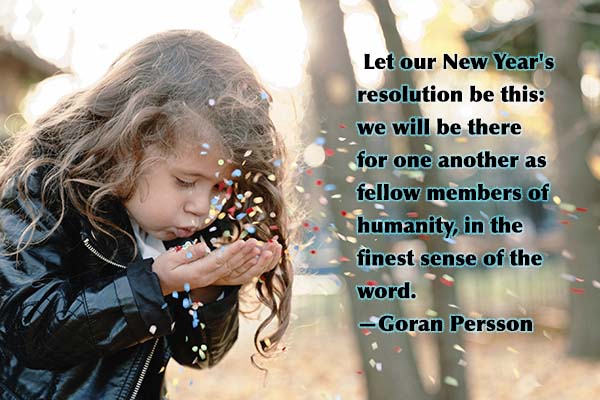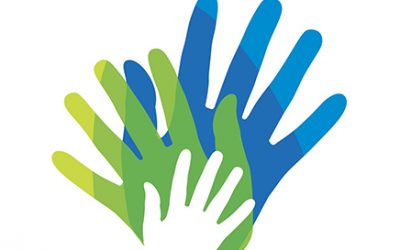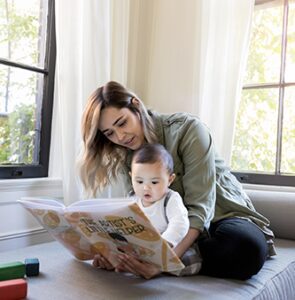ARE WE REALLY ALL FRIENDS?
by Betsy Merena
In this article, we will discuss the appropriateness of the long-standing tradition of using the term “friends” as an all-encompassing definition of peer relationships in the early childhood classroom environment. Through a personal anecdote that spurred self-reflection and a pivot in my own teaching practices, we will discover informed alternatives that ease the pressure created by expectations of universal friendship.
“But what is a social life if not the solving of social problems, behaving properly, and pursing aims acceptable to all?”
Ubiquitous in almost all preschool classrooms across the country, both Montessori and mainstream, is the idea that we’re all friends. But are we really?
Receiving lessons in, and creating an environment rich in, Grace and Courtesy is a hallmark of a good Montessori education. But is universal friendship an equally essential ideal? As guides in the Montessori toddler and primary environments and beyond, we want pleasant interactions among our students. We want cooperative work and play efforts. We want classrooms full of children who enjoy being there and being together. And we guide, teach, and prepare the environment, with those goals in mind.
But do we need to enforce the idea that we’re all friends?
It wasn’t until I became the parent of a primary-aged Montessori student that I came face-to-face with the pitfalls of this concept. All my previous years of experience in the world of early childhood education were full of songs and encouragements, championing the same basic message: we’re all friends.
But what if that’s not true?
Here’s what happened to jumpstart this shift in my thinking. My daughter, four years old at the time and a second-year primary student, was having trouble with a boy in her class. As the toddlers’ guide in the same school, I had the benefit of hearing the teachers discuss various students and how to handle the challenging situations that crop up in any given year. Plus, we share a playground and recess time. So, I was able to observe my daughter and her class daily. I knew that this boy, new to the school, was having a harder time than most acclimating to the classroom environment and was targeting a few specific children with some of the worst of his behaviors. My daughter was one of them.
As parents, my husband and I fielded her frustrations and complaints at home with the standard responses: Talk to him and tell him “No.” Your friends should make you feel good pretty much all the time; if they’re not, and if they’re not respecting your body, then you don’t have to be friends with them.
It was at that point that my daughter broke down into crocodile-sized tears and said, “But my teacher says we’re all friends.”
It felt like the air was knocked from my lungs. In that moment, it felt like the entirety of my teaching career flashed before my eyes. How many times had I said those same exact words to my students? We’ve sung those words and sentiments at our morning circle countless times. Full of the best intentions, I’ve said them over and over to children who were struggling to get along.
But what if that phrase, that sentiment, is doing more harm than good?
What if it’s giving young children, and their developing social skills and social understandings, a skewed idea of what friendship is and what it means to exist in a cooperative environment with our peers?
As adults, we live and work in a society with each other. We navigate relationships of all kinds in many ways. But no one ever expects us to be friends with everyone with whom we regularly interact. Why do we ask that of children?
Instead of saying we’re all friends, let’s try, “We are a community” instead. In communities, people are expected to act with grace and courtesy toward each other, but they are not expected to be friends with everyone. We can set healthy boundaries and still be kind. We can recognize how other people make us feel and choose who we honor with the title of ‘friend’.
In a community, we can all work towards the same goals; we can share experiences. We can learn and grow together. We can do all these classroom basics without the pressure of being friends with every single person.
After I caught my breath, I looked my daughter in her tear-rimmed eyes and said, “You do not have to be friends with anyone who makes you feel this badly. You are classmates and part of the same community. You need to be kind to each other, but you do not have to be friends.”
The relief that realization had on my daughter was immediate and profound. And its magnitude hit me in the same way. Children, even young children, can be classmates without the pressure or expectation of being friends.
As guides, and as parents, we know that some children’s personalities are like oil and water. It is so much more empowering to say to them honestly, “You don’t have to be friends, but you must be respectful, kind, and courteous to each other.”
Perhaps then, as these children grow, they’ll have a healthier view of friendship. We can hope that they will have a more robust emotional and social tool kit for existing cooperatively with people who they just don’t click with well.
And, what a poignant lesson this could be for us as an American community right now. We might not all be friends, we might disagree, but we must be respectful, kind, and courteous to each other.
“The social rights of children must be recognized so that a world suited to their needs may be constructed for them.” – Maria Montessori
REFERENCES:
Montessori, M. (1967) The Absorbent Mind, p225
Montessori, M. (1966) The Secret of Childhood, p225
Betsy Merena is an AMS certified toddler guide at The Montessori School of Westminster inWestminster, Maryland with over a decade of teaching experience in early childhood classrooms. Along with her husband and daughter, now in her first year of lower elementary at the same school,Betsy loves to explore the world through travel and cooking. She also volunteers asa Girl Scout troop leader for her daughter’s troop and enjoys spending time camping.







